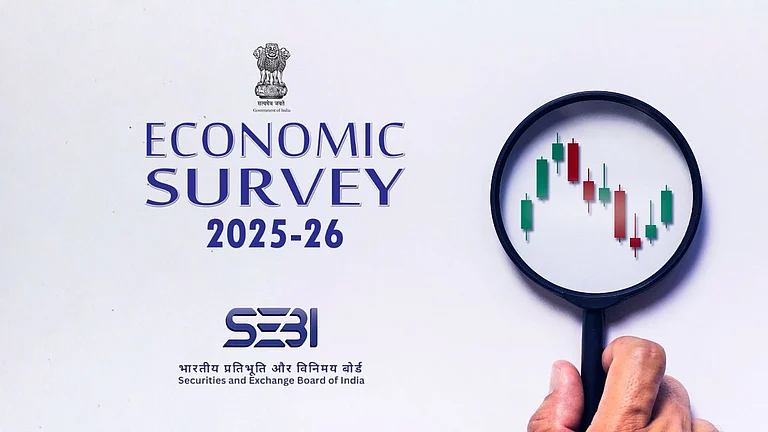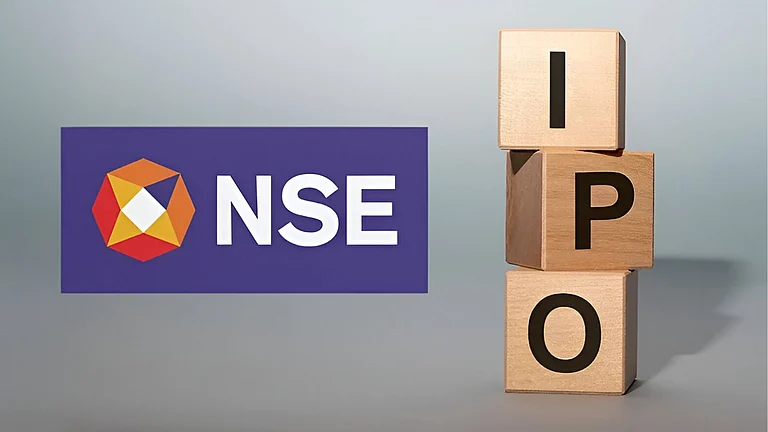The Securities and Exchange Board of India (Sebi), in its board meeting on Wednesday, June 18, cleared a slew of regulatory reforms to simplify regulations across asset classes, ease compliance for market participants, and improve transparency to make markets more investor-friendly. Among the major areas addressed were the norms dealing with Real Estate Investment Trusts (REITs) and Infrastructure Investment Trusts (InvITs).
Here's a deep dive into the regulatory changes announced and what it means for investors:
1. Lower Entry Barrier For InvIT Investors
The market regulator has reduced the minimum allotment size for privately placed InVITs to Rs 25 lakh. Prior to this, the minimum investment was Rs 1 crore or Rs 25 crore, depending on the type of assets held by the InvIT.
In an earlier round of reforms, Sebi had already lowered the secondary market trading lot size to Rs 25 lakh. Now, the primary market has been brought in line with this, making investing more accessible.
"Lowering the minimum investment removes a major barrier for smaller institutions, family offices, and affluent individuals," said Anand K Rathi, Co-Founder of MIRA Money, an AMFI-registered mutual fund distributor and wealth management company. "It brings privately placed InvITs within reach of a broader base. This broader investor base should lead to improved liquidity and price discovery in the secondary market, benefiting all unitholders regardless of size," he said.
He also noted that the alignment of minimum ticket sizes in the primary and secondary markets will help eliminate a long-standing friction that confused investors and fragmented liquidity.
Rohit Shimpi, CFA and Fund Manager at SBI Mutual Fund, sees this as a step in the right direction. He believes the move could help broaden the investor base beyond just ultra-high-net-worth individuals (UHNI) and institutions to include affluent retail investors and mass HNIs. However, he also points out that this may not be enough to bring in investors at the scale seen in traditional retail equity markets, and trading volumes could still remain relatively low.
According to Shimpi, a more meaningful shift could come when any privately placed InvIT converts to a publicly offered InvIT.
2. Harmonisation Of Reporting Timelines
Sebi has also harmonised the reporting timelines for submitting various reports like financial results, valuation reports, and quarterly disclosures to the stock exchanges or trustees. Rathi believes this will enhance transparency and efficiency in the REIT and InvIT information ecosystem and ensure that investors receive timely and comprehensive data to make well-informed investment decisions.
"This enables deeper analysis of performance drivers and asset values, helping market participants better understand income-generating assets like real estate and infrastructure, and make more informed investment decisions," said Rathi.
Vijay Agrawal, Managing Director at Equirus Capital, highlighted that, as per existing norms, financial results are disclosed quarterly, while valuation reports are published on a half-yearly basis.
Agrawal noted that the harmonisation of reporting timelines, once clarified in the final regulations, would enhance transparency and improve the quality of disclosures. This amendment, in turn, could lead to better analyst coverage and greater public scrutiny of these investment vehicles. This will help retail, high-net worth individuals (HNIs), and institutional investors make well-informed investment decisions, Agrawal added.
According to Shimpi, these measures will likely ease the compliance burden on REIT and InvIT managers. He believes that regulatory disclosures by REITs and InvITs are already robust, and many issuers proactively share additional information through investor presentations, conference calls, and other channels. In his view, data availability is not a hindrance to analyst coverage.
3. Defining Who Counts As Public Investors
Sebi also redefined who will count as "public" investors. The related parties, like associates or group companies of the REIT or InvIT, and of the sponsor, investment manager, or project manager, will not be considered "public" investors, clarified Sebi, unless they are Qualified Institutional Buyers (QIBs) such as mutual funds, banks, etc.
However, the sponsor, sponsor group, investment manager, and project manager will always be excluded from public classification, even if they are QIBs, the regulator added.
"In simpler terms, this change increases the public float without requiring additional unit issuances," Rathi explained. "Recognising financially-linked QIBs aligns with global norms and supports a more stable, diverse investor base while maintaining transparency and oversight," he said.
Shimpi, too, is of the same opinion that this amendment will increase the calculated free float, though he said the extent of this will need to be seen. "At the margin, it will likely provide more flexibility to sponsors, for related party entities that are structured as foreign portfolio investors (FPIs) or alternative investment funds (AIFs) and hence qualifying as QIBs. However, there is likely to be no impact of this move on transparency which is already quite satisfactory."
Agrawal of Equirus Capital said, "Most private equity funds hold a majority stake in REITs or InvITs through multiple entities. Usually, one entity is listed as the Promoter, and the others as part of the Promoter Group. But earlier, their total group holding was not counted as public shareholding, which made it look like they owned more than they actually did. The proposed change will allow QIB entities in the Promoter or Sponsor group to be treated as public shareholders, which will help them meet the minimum public shareholding requirements."
4. Holding Companies Allowed To Adjust Losses
If a holding company between a REIT or InvIT and its projects Special Purpose Vehicles (SPVs) is running at a loss, it can now adjust those losses against the cash it receives from the SPVs before passing the funds on to the REIT or InvIT. This is allowed as long as the REIT or InvIT discloses this adjustment clearly to investors.
As per previous norms, holding companies were required to pass on the entire cash flow from their SPVs to the REIT or InvIT, even if they were incurring losses themselves.
Agrawal said, "Current regulations provide for distribution of cash received from SPVs without netting off of negative cash at the Trust level. At the Trust level, expenses are incurred for management of the Trust. Few Trusts have centralised their borrowings at the Trust level to reduce their interest cost by pooling assets. Such Trusts were incurring cash outflow on interest and repayment of loans. With this amendment, such trusts will be able to net off their cash outflows with inflows from SPVs and distribute their balance cash.
A Move Towards Mainstreaming REITs, InvITs
Rathi said Sebi's recent reforms show a clear push to bring REITs and InvITs into the mainstream alongside equities and mutual funds. He said, "The proposal to classify them as equity instruments for mutual fund investments and raise allocation limits from 10 per cent to 20 per cent is a big shift in perception and accessibility."
Sebi, in an earlier round of reform, had proposed to classify REITs or InvITs as equity instruments.
Rathi added that the move is in line with global practices and could lead to better access and liquidity for these instruments. "India's REIT market is growing steadily, with Rs 1.63 lakh crore in assets under management (AUM) and Rs 6,070 crore in FY25 distributions. REITs currently make up just 14 per cent of the country's real estate market cap, so there's strong potential for growth, especially through index inclusion and passive fund inflows," he said.
Shimpi, too, thinks Sebi has been supportive of the development of the Indian REITs and InvITs ecosystem, and says that these reforms are in line with their earlier measures.














